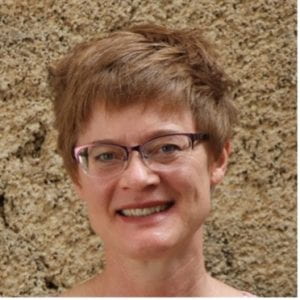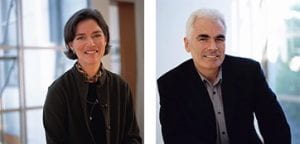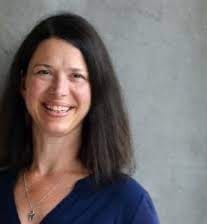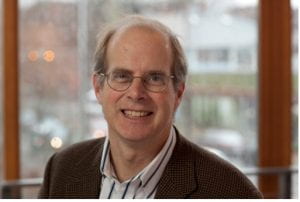Faculty, practitioners, content experts, and students were invited to submit work that demonstrates how research innovates education, how practice can spur research, and how exemplary lessons and activities will inspire future stewards to shape zero net carbon buildings and communities.
Selection of papers were based on a two-stage, blind peer-review process: Phase 1: Abstract review; Phase 2: full-paper review. Authors of selected abstracts were invited to submit full papers for peer-review. Abstracts not accepted for full paper submission were invited to submit posters. Paper presentations were traditional (15-20 min) or a lightning presentation (20 slides shown for 20 seconds each; 6 minutes and 40 seconds in total, PechaKucha timing). Additionally, selected papers presented at the symposium were invited for a Special Issue publication in Building and Cities: Mainstreaming Zero Carbon: lessons for built environment education and training.
Posters were exhibited through the duration of the symposium, with a designated Q&A period with the authors.
Innovative and effective lessons were submitted with a particular interest in the following topics:
Topic 1: Design Integration
Sustainable or regenerative design strategies require the tight integration of technical and scientific knowledge about energy, materials, and water into the design process to iteratively approach high-performance design goals. Are new curricular structures emerging which address the shift in NAAB from comprehensive to integrative design-related education? Calling for innovative pedagogy or professional practice, this theme surveys the current integrative studio design pedagogy by asking the following questions:
- How is the integration of energy modeling, daylight simulation, and/or occupant behavior progressing towards integrative design pedagogy?
- Are new pedagogical approaches emerging to integrate water conservation and waste management systems into the design process?
- What are the new models of interdisciplinary education between architecture and engineering disciplines or landscape architecture and urban design in this regard?
Topic 2: Design with (a Changing) Climate
In Design with Climate: Bioclimatic Approach to Architectural Regionalism, Victor Olgyay describes designing a “climate balanced” building that would provide for comfort while minimizing the need for mechanical systems. Olgyay’s bioclimatic approach heavily influenced the passive solar building movement, was incorporated into energy modeling software and became a cornerstone of building science education. However, the rapid advancement of climate change requires us to rethink applying Olgyay’s methodology. This theme asks:
- How does designing with climate need to shift to address a rapid change in climate?
- How does the content and pedagogy of a studio shift to integrate issues of climate-related equity, vulnerability, and adaptation in addition to traditional integration of building systems?
- How do design studios accurately convey and address metrics of passive and/or active design?
Topic 3: Digital Approaches to Design Education
Digital tools and methods have transformed design education, research, and practice over the last several decades. Tools and methods such as computer-aided design software, parametric modeling plug-ins, 3D printers, and immersive virtual and augmented reality, have changed the way buildings are designed. At the same time, the race to master, expand, and integrate new tools places constant pressure on the integration of new pedagogical approaches and can run the risk of valuing digital proficiency over design ability. To this end, this theme asks:
- How do analog and digital methods reinforce one another to create better architecture?
- How can digital tools allow us to engage in sustainable design education in new ways?
- With so many different approaches and methods, what defines digital design education?
Topic 4: Education in Practice, Practice in Education
Design practice, research organizations, and continuing education providers often serve as an extension of architectural education that includes activities such as mentoring, research, testing of ideas, learning about new materials and innovative technologies. With the urgency to address global climate targets, this theme delves into the educational practices that organizations use beyond lunchtime training and what influence non-traditional educational roles might have on addressing the following questions:
- How does your firm structure disciplines within a team – in-house? Hire outside consultants?
- What kinds of tools and experiential learning are most effective in your practice? What strategies and tools has your organization fostered collaboration?
- How does your organization educate its own (in -staff in-house or in the field) to address the climate challenges of the future?
Schedule
- January 1, 2019: Calls for Abstracts
- January 1, 2019: Registration Opens
- March 4, 2019: Abstract deadline [11:59 pm PST]
- March 30, 2019: Abstract acceptance decision
- June 30, 2019: Full paper/poster deadline [4:59 pm PST]
July 22, 2019: Notification of paper/poster acceptance, with comments - August 15, 2019: Final paper(s)/poster(s) deadline
- August 30, 2019: Early registration extended to September 6
- October 4, 2019: Registration closes (no refunds after this date)
- October 18–19, 2019: Symposium
- October 18: Keynote (Nina Maritz) and Reception
- October 19: Keynote (Marsha Maytum and Bill Leddy), parallel paper sessions
- October 20, 2019: Tour: Oregon Zoo Education Center, 2019 AIA COTE Top Ten Award, 9:30-11:00 am, Eventbrite registration for free tickets to reserve your space
Keynote Speakers
DAY 1 | October 18, 2019 “From Sustainability to Resilience – Preaching Outside the Choir”

Nina Maritz Architects, Windhoek, Namibia Sponsored by the Jeffrey Cook Charitable Trust http://www.ninamaritzarchitects.com/
DAY 2 | October 19, 2019 “Redefining Design Excellence for a Climate Positive World”

Marsha Maytum, FAIA and Bill Leddy, FAIA, LMSA, San Francisco
LMSA is a teaching practice committed to developing complete, well-rounded architects, leaders in the profession and effective global citizens. Recognizing no distinction between design and the other elements of practice, we encourage staff to become skilled professionals within an open office environment that promotes an educational transparency of purpose, process and action. LMSA received the distinguished national AIA Architecture Firm Award in 2017. https://www.lmsarch.com/
In Practice Panel
DAY 2 | October 19, 2019 “How Did You Get There? OPSIS Architecture: Oregon Zoo Education Center,” selected 2019 AIA COTE© Top Ten Award


Heather DeGrella, Senior Associate & Alec Holser, Partner in Charge [OPSIS Architecture]: “We embrace our responsibility as designers to improve the environment through the well-considered intervention of our architecture.” Our architecture formulates our client’s goals and aspirations into a compelling concept that is derived from the unique qualities of the program, site and context. We aspire to realize buildings that work, inspire and express beauty through construction, composition and form, materiality and craftsmanship with attention to detail. The design quality of Opsis projects has been consistently recognized with over 75 regional and national design awards.
2019 Reynolds Symposium Organizers
Co-Organizers
- Professor Alison Kwok, Ph.D, FAIA, University of Oregon
- Emeritus Professor John Reynolds, FAIA, University of Oregon
Symposium Coordinator
- Isabel Rivera, Ph.D., University of Oregon
Advisory Committee
- Professor Walter Grondzik, P.E., Ball State University
- Professor Bruce Haglund, AIA Assoc., University of Idaho
- Assistant Professor Emily McGlohn, AIA, Auburn University
- Associate Professor Ulrike Passe, Iowa State University
- Assistant Professor Siobhan Rockcastle, Ph.D., University of Oregon
- Sharon Refvem, FAIA, LEED Fellow, Senior Associate and Director, Sustainability Resource Group, Hawley Peterson Snyder
Sponsors
- University of Oregon School of Architecture & Environment
- Reynolds Symposium Endowment
- Davis Family Endowment
- Jeffrey Cook Memorial Trust
- Society of Building Science Educators
